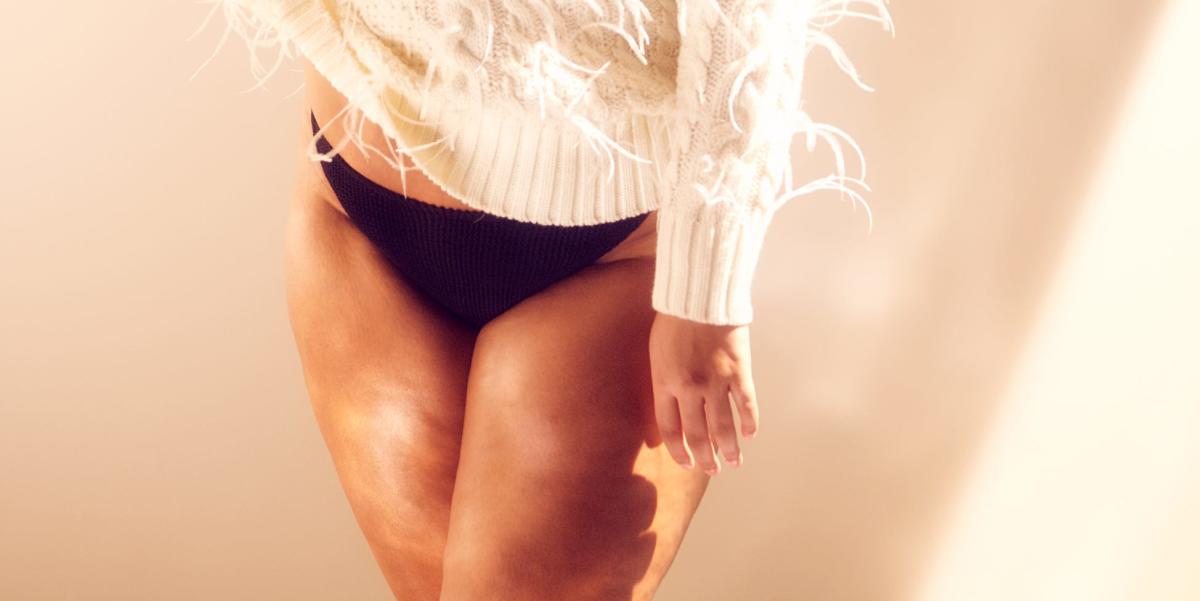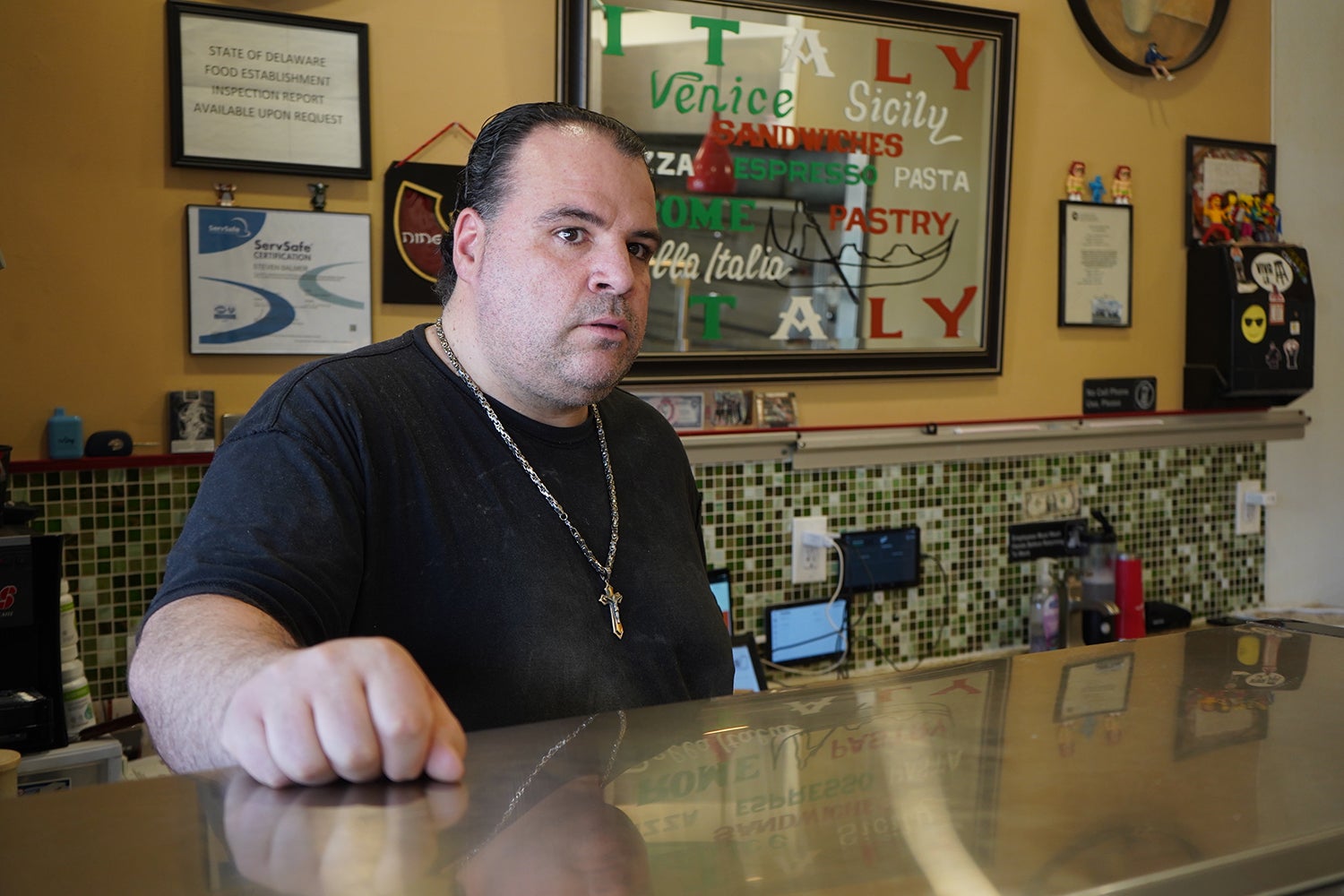Fashion
‘My Body Has Gone Out Of Style’ – One Fashion Stylist’s Wish For The Inclusivity Revolution

How do you feel about the word ‘fat’? I’m guessing you are probably reluctant to use it, possibly even afraid of it. And as for the prospect of being fat? Forget it! Fatphobia is insidious, it’s everywhere – it affects us all.
Fashion is a notoriously fatphobic space – no news there – but the current situation is particularly woeful, not least because things looked as though they were getting better for a while. There was a period in 2020 when the tide seemed to be turning on representation across the industry – consider how power was called to account amid the Black Lives Matter protests – and castings of fashion shows, covers and campaigns started to reflect that desire and demand for diversity as a result.
But just as some brands ‘green wash’ and make false sustainability claims, the same has happened when it comes to size. The AW24 shows were a real step back, with plus-size representation dropping substantially. It’s as though the powers that be thought nobody was looking any more, and immediately went: ‘OK, let’s take our foot off the gas and go back to how things were.’ Body acceptance was a trend, not a cultural shift.
FIND OUT MORE ON ELLE COLLECTIVE
I say that with authority. As a stylist and the creative director of Perfect magazine, I know my industry well and not many people look the way I do: I am a size 22. I don’t want to think about my appearance as often as I do, but then I go to fashion shows and nobody in the audience looks like me, nobody who’s walking down the catwalk looks like me, and I am constantly reminded, everywhere, that I am different. And, by the way, even though I’m technically ‘behind the scenes’ as a stylist, I have been told that professionally I’d ‘do better’ if I lost weight. I prefer to let my body of work, not my body, get me jobs.
People see me before they hear me, and what they see is something that they don’t necessarily like. This is not because everyone’s mean and horrible, it’s an unconscious bias. I am everything that much of the fashion industry doesn’t want to be. And though I’m a tough person, and on many stronger days I don’t care what anyone thinks, it has affected me. It’s hard to witness the media reinforcing the idea there’s no space for you. It makes me angry. It makes me sad. You’ve got to have mental strength. Increasingly, I can’t get away from the messaging that my body is ‘wrong’. It feels genuinely damaging.
Ozempic has played a huge part in the current mood and attitude regression. It exacerbates this idea of ‘skinny’ as an aspirational state, and has given people the licence to openly chat about that, which I find deeply embarrassing – there are so many more interesting, important things to be talking about.
(Full disclosure: I am taking Wegovy, a medication with the same active ingredient as Ozempic: semaglutide. I am very open about it, and wrote about it for ELLE last year. I am taking it for my health, not to fit into a certain dress size.) For many, Ozempic amplifies the idea of ‘skinny’ as a status symbol. I know people who alter pictures of their body on Photoshop so they can get hold of it, and PR girls who are taking it so they can run around in the samples they promote. It has tapped into the fear everybody has of being fat. I’m sure the viral ‘I

Of course, there are a number of high-profile models who aren’t sample size (although even some of the ‘plus’ girls had visibly lost weight this season). But it shouldn’t all be on, say, Paloma Elsesser to carry the weight of that responsibility of representation. She’s a beautiful, bright, interesting person who is about so much more than just her size. It’s not enough to cast her and only her in a show. We put a lot of pressure on those who do break through to be all things to everyone, and we have a lot of opinions on their bodies. Do you remember when Lizzo felt she had to clarify that being a vegan wasn’t about losing weight, or the backlash Adele faced when she did? Rather than looking to a handful of individuals to represent so much, what we need is to do some proper work as a collective.
As for brands, even if they don’t have a moral compass, do they not want to make money? I can’t believe that they don’t recognise how great it would be for business to embrace broader sizing. They’d make so much – guaranteed. The average size in the UK is still above a 16. People in larger bodies still want high-quality fabrics, we want nice cuts and original designs, but the options are so limited. Anything that is plus size and luxury? I’ve got it. And anybody who looks like me in fashion? We all have the same clothes: the same Vaquera wardrobe, the same pieces from the collaboration Paloma did with Ganni. Of course we do, because it’s so rare to have those moments.
There are, of course, some designers who genuinely cater to larger bodies with exciting, sexy, cool designs. Ester Manas and Sinéad O’Dwyer do it really well. Karoline Vitto makes amazing clothes; I wore one of her dresses to the Fashion Awards. Di Petsa made me an incredible long sheer dress that made me feel like a goddess – a feeling everyone deserves to experience. 16Arlington’s Marco Capaldo was one of the first designers to dress me. I love Chopova Lowena skirts – when I style one with a T-shirt I always feel cute. I wear Comme des Garçons religiously; rotate through plenty of Molly Goddard dresses; and fall back on a Dala jeans, corset and jacket combo (yes, triple denim), which always gets me compliments. It is possible for brands to include bigger sizes.
You’ll notice that most of the designers I just named are young women. And I think therein lies part of the problem: this is still an industry largely run by white men, who are still holding up a very narrow, Westernised beauty standard as the goal. We’re being sold the male gaze. To change what we see on the outside, we need a 360 approach, and to focus on changing things from the inside. We need a broader mix of voices and perspectives, as well as representation in positions of power. We need structural change, because if we only have people who look one way running everything,
then they’re always going to overlook the issue of body acceptance. Individually, we can also take responsibility for how we feel. I’m aware that social media can be enormously damaging, but for me, it’s a really positive space. Follow people who make you feel good; mute those who don’t. You’re paying the phone bill. Protect your space and what you consume.
My life would be a lot easier if I didn’t talk about all this. But I want to be heard, and I want to create that safe space for people like me. Falling in line and not speaking up is not helping. I think that’s why the industry is the way it is. So, I try to speak out whenever I can. Every week, I feel like giving up and find- ing something else to do. But what else could I do? Growing up, I used to spend all my lunch money on fash- ion magazines. I remember thinking, ‘I can’t be the only person that looks like me who likes these things’, and I still believe that. So, I keep doing it for little Jeanie, who was 15 and really, really loved clothes, who used to make collages and watch fashion TV non-stop. I’m trying to honour her. I think a lot about other young women who look like me and are desperate to break into the industry. I want to help set it right for them.
I’m a big fan of body neutrality over false positivity. My goal is to never have to look in the mirror and be cruel to myself, or go out into a world that will say hateful things. I want to look at my body and just think: ‘It does what it needs to do for me.’ I want to take care of it. I want it to be completely un-noteworthy. Radical self-love is a real thing, but it’s a life-long journey. Loving yourself takes a lot of work. I have to work to not let those voices get in. I celebrate my accomplishments. And I’m lucky that I can laugh about things.
If we all admit that everybody is going through the same thing – albeit in different ways, and to different degrees – it might be a little bit easier to be real. Being a stylist, I work around beautiful people all the time, and those people have the exact same fears as me. I see supermodels, pop stars and Hollywood royalty all saying, ‘I really hate my thighs.’ It’s often madness, but I’m comforted in knowing that many others genuinely feel the same as I do – we just don’t all say it.
We can kickstart the inclusivity revolution again by having frank, real conversations: honest discussions where we aren’t scared of using the word ‘fat’. More dialogues also lead to more common sense. Equating our value to how we look is an outdated and ridiculous message. Can you imagine if everyone could switch that off in their brains? What we could achieve? Trust me, we would get so much more done.
This article appears in the October issue of ELLE UK, out now.
ELLE Collective is a new community of fashion, beauty and culture lovers. For access to exclusive content, events, inspiring advice from our Editors and industry experts, as well the opportunity to meet designers, thought-leaders and stylists, become a member today HERE.
You Might Also Like










